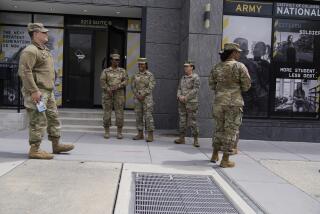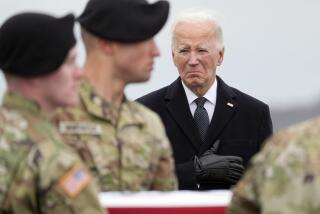Military suicides: Obama seeks to ease the pain
When a member of the U.S. military is killed in the line of duty in a combat zone, the president sends a condolence letter to his or her family. But such letters were never sent to families of military personnel who committed suicide in combat zones. Until this week.
“This issue is emotional, painful and complicated, but these Americans served our nation bravely,” President Obama said in a statement, released Tuesday, announcing his reversal of the long-standing policy. “They didn’t die because they were weak. And the fact that they didn’t get the help they needed must change.”
In addition to providing some comfort for grieving families whose losses had not been acknowledged, Obama’s decision signaled a needed shift in the way suicide in the military is viewed.
The numbers of service members who kill themselves while deployed in combat zones are not huge. In 2010, 295 active-duty military personnel committed suicide, according to a Department of Defense spokesperson. Of that number, 30 killed themselves in a combat zone. It is those deaths the president will now acknowledge.
What is alarming is the increase in suicides over this last decade of war. Historically, the suicide rate in the military was lower than in the general population, according to a 2010 report by an Army task force on the issue. But in 2004, suicide and accidental death rates among Army personnel began trending upward, and in 2008, the suicide rate rose above the national average.
According to the report, while the civilian rate remained relatively stable between 2001 and 2007, “both the Army and Marine Corps rate has increased steadily.” The Army and Marine Corps, it continues, “have borne the majority of ground combat operations.”
There are many factors behind anyone’s suicide, no less so for someone in the military, dealing with the stress of combat or the stress of returning home after combat. The Army report also raises the question of whether the demands of prolonged war may have “unintentionally” shifted the Army demographic toward “a larger risk-seeking population.”
But the president’s action addresses a simpler, sad reality: Soldiers die in many ways, and those who succumb to their own demons deserve no less tribute than those who fall to the enemy.
More to Read
A cure for the common opinion
Get thought-provoking perspectives with our weekly newsletter.
You may occasionally receive promotional content from the Los Angeles Times.






